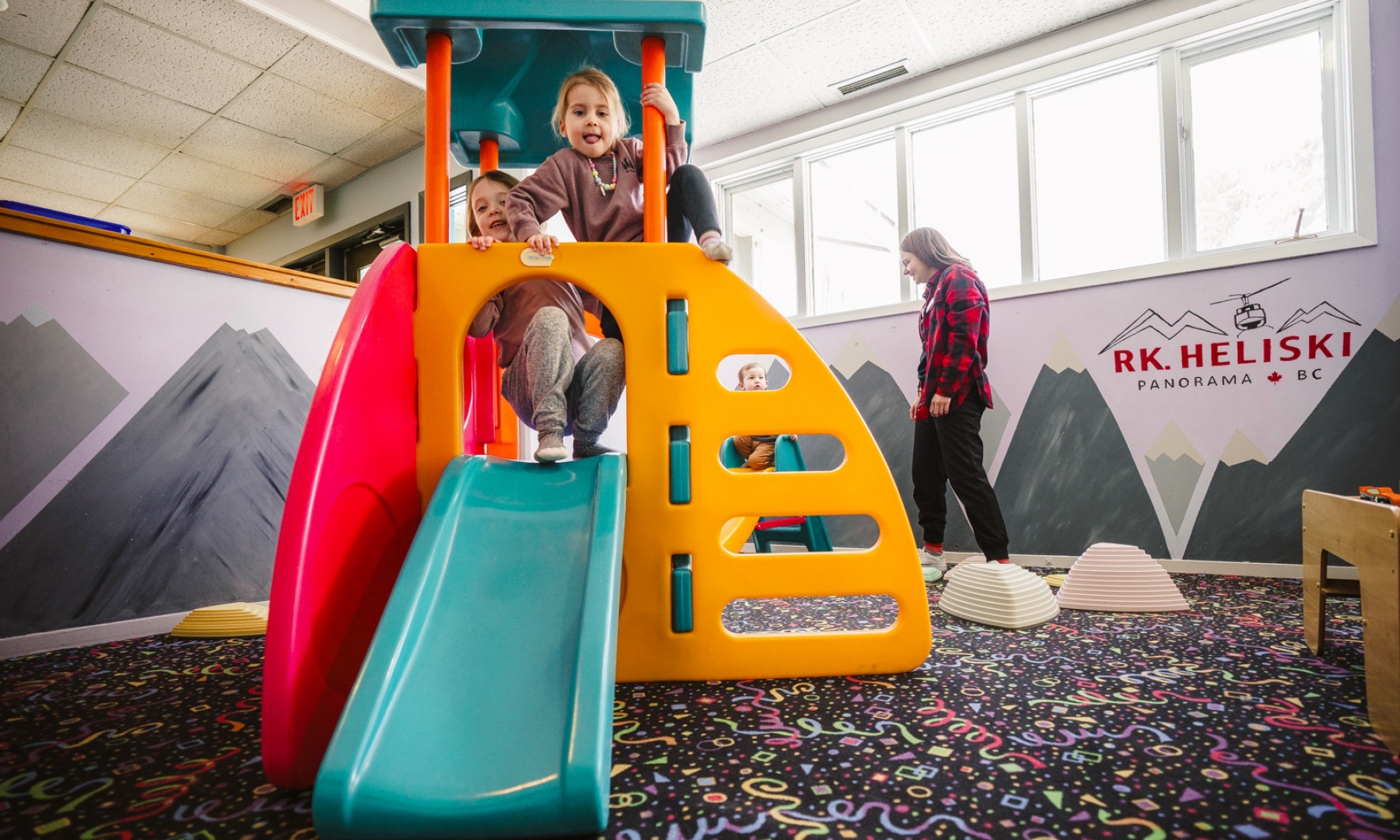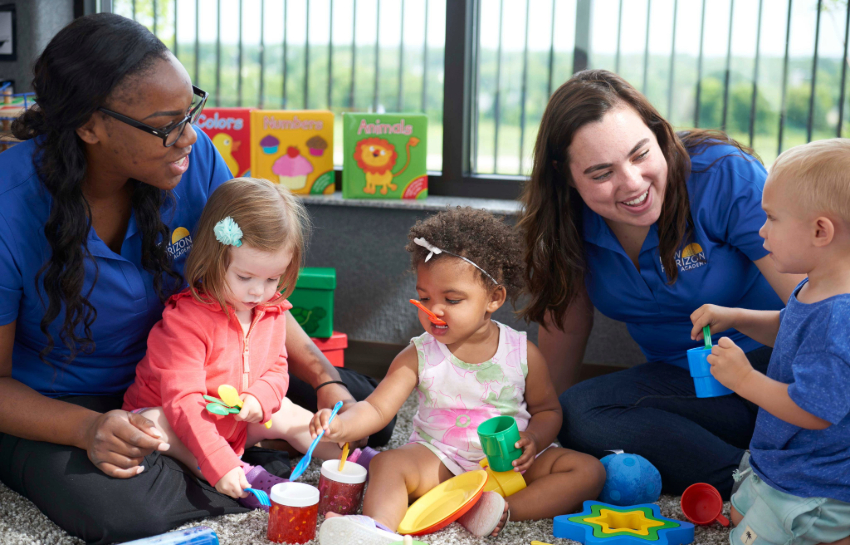Discover the Best Baby Daycare Near Me: Safe and Nurturing Settings
Wiki Article
The Duty of Childcare in Cultivating Your Young child's Cognitive and emotional Skills Through Organized Play and
The role of daycare in supporting a young child's emotional and cognitive development is commonly ignored, yet it offers as a critical setting for structured play and academic activities. Via thoroughly made interactions and experiences, caretakers help with crucial skills such as psychological recognition and problem-solving.Value of Structured Play
Structured play is an important part of toddler development, as it supplies a structure through which kids can involve in purposeful interactions and discovering experiences. This kind of play is purposefully designed to promote different developing abilities, such as cognitive, social, and physical abilities. By taking part in organized tasks, kids learn to follow guidelines, take turns, and accept peers, every one of which are essential for their interpersonal skills.
Furthermore, structured play often includes educational components, such as counting, color acknowledgment, and language development, seamlessly integrating finding out into enjoyable activities. This strategy not only records toddlers' interest but likewise enhances vital principles in a satisfying fashion. In general, structured play contributes in promoting a well balanced development, furnishing toddlers with the foundational abilities required for future knowing and social communications.
Emotional Development in Daycare
Daycare atmospheres play a critical role in fostering emotional development in young children. These settings supply kids with chances to engage with peers and caretakers, facilitating the development of important social-emotional skills. Through regular interactions, toddlers learn to recognize and express their feelings, such as sadness, frustration, or pleasure, which is essential for their psychological maturity.

Additionally, the organized atmosphere of childcare allows children to experience a range of emotions in a safe room. They learn to take care of sensations of separation anxiousness when transitioning from home to day care and establish resilience as they navigate new connections and experiences. In general, the emotional advancement promoted in day care not only benefits young children during their formative years but also prepares for healthy interpersonal relationships and emotional health throughout their lives.
Cognitive Abilities Via Tasks
Via taking part in a range of activities, toddlers in daycare settings can significantly enhance their cognitive abilities. Structured play and instructional jobs are important in promoting cognitive advancement, as they offer opportunities for expedition, analytic, and important reasoning. Activities such as puzzles, foundation, and memory video games challenge toddlers to assume artistically and realistically, fostering essential abilities like spatial understanding and pattern recognition.Moreover, interactive storytime sessions urge language advancement and comprehension. By paying attention to stories, toddlers find out to process information and involve their creative imaginations, which boosts their narrative skills and vocabulary. Additionally, hands-on tasks involving crafts and arts promote great electric motor skills while additionally encouraging self-expression and creative thinking.
Sensory play, such as sand or water activities, allows young children to experiment with various structures and products, promoting inquiry-based understanding. These experiences not just enhance cognitive capabilities but likewise instill a sense of inquisitiveness regarding the world around them - baby daycare near me. On the whole, the diverse array of cognitive activities supplied in daycare atmospheres plays a pivotal function in forming a toddler's capability to assume critically, fix problems, and engage meaningfully with their environments
Social Links and Interaction
In a caring setting, toddlers naturally build social connections and take part in communications that are essential for their social and emotional development. Day care setups provide a distinct possibility for youngsters to communicate with peers, promoting crucial social skills such as sharing, collaboration, and dispute resolution. These communications aid toddlers learn to navigate their feelings and comprehend the viewpoints of others, which are critical components of emotional intelligence.With structured play and team tasks, kids are urged to connect their ideas and sensations, enhancing their verbal skills and promoting empathy. Involving with peers also presents them to varied social standards and actions, improving their understanding of social characteristics. Consistent interaction with other youngsters aids to construct a feeling of neighborhood, offering a support system that is beneficial for psychological development.
As kids take part in collective tasks, they learn the relevance of perseverance, arrangement, and team effort. These foundational social skills are critical as they get ready for future partnerships, both in academic setups and beyond. Inevitably, the social links formed in day care play a considerable role in shaping a kid's capability to interact favorably and effectively with others throughout their lives.
Duty of Caregivers in Growth

Caretakers play an essential role in cultivating toddler development, especially in the context of the social communications they experience in daycare settings. These professionals supply a nurturing environment where young children can explore their emotions and cognitive capabilities through structured play and . By taking part in significant conversations, caretakers sustain language advancement and enhance social abilities.
Additionally, caregivers model ideal habits and emotional feedbacks, assisting toddlers find out empathy and problem resolution. Their existence also develops a complacency, which is crucial for kids to confidently discover their surroundings and involve with peers.
In addition to emotional and social assistance, caregivers contribute in carrying out educational curricula that advertise cognitive growth - daycare near me for infants. They present age-appropriate activities that promote inquisitiveness, important thinking, and analytical abilities. This structured technique ensures that young children not just enjoy their play yet likewise obtain foundational understanding crucial for future knowing
Inevitably, the quality of caregiver communications significantly affects a kid's overall advancement. By promoting a encouraging and engaging ambience, caregivers assist prepare for healthy and balanced emotional and cognitive growth, gearing up youngsters with essential skills for their lifelong journey.
Verdict
Finally, daycare functions as an important atmosphere for promoting cognitive and psychological growth in kids. Via structured play and , children experience significant growth in their ability to recognize and express emotions, develop crucial believing skills, and form vital social connections. The function of caregivers contributes in helping with these experiences, guaranteeing that each kid benefits from a nurturing atmosphere that promotes long-lasting psychological health and cognitive improvement.The function of day care in nurturing a toddler's psychological and cognitive advancement is commonly undervalued, yet it offers as a critical environment for organized play and instructional activities. In general, structured play is important in advertising a well balanced advancement, gearing up daycare near me for infants kids with the fundamental skills necessary for future learning and social communications.
Day care environments play a crucial duty in promoting emotional growth in young children. In general, the psychological advancement fostered in childcare not only advantages young children during their developmental years however additionally lays the foundation for healthy social relationships and psychological wellness throughout their lives.
Through structured play and team activities, kids are encouraged to connect their feelings and ideas, improving their spoken skills and advertising empathy.
Report this wiki page